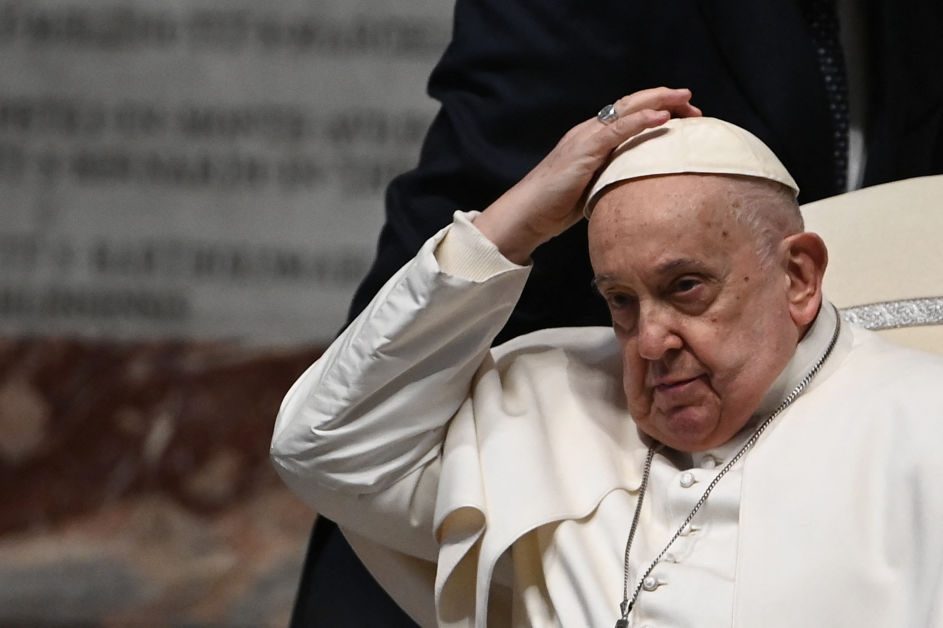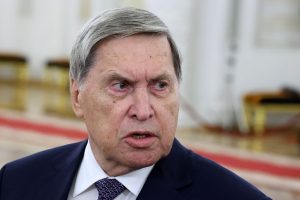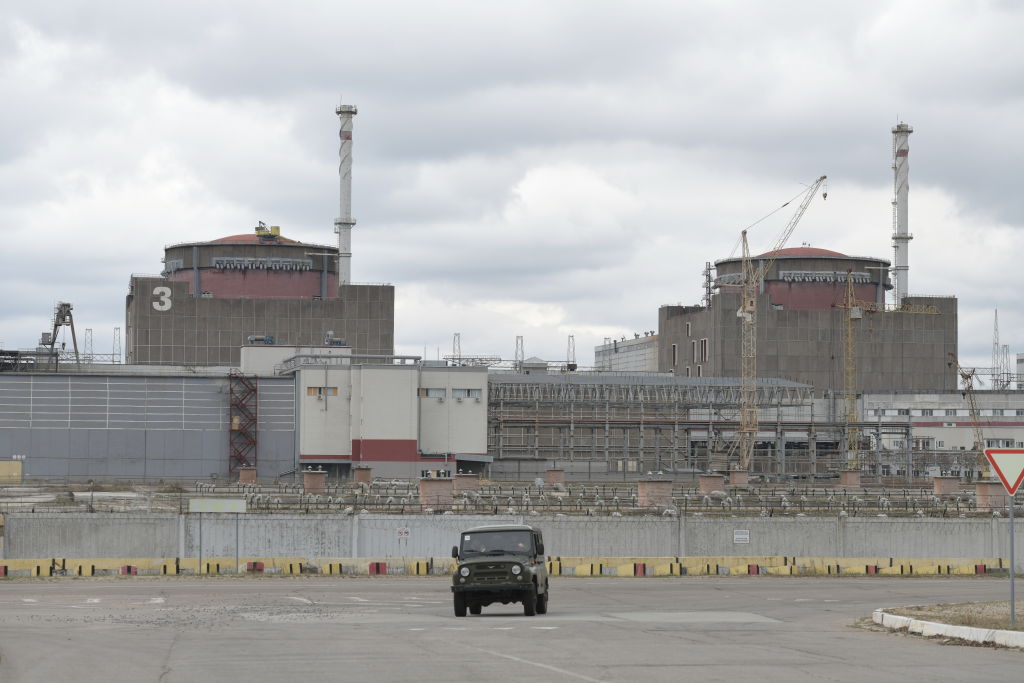If you didn’t know any better, you might think that Pope Francis was no longer welcome in Ukraine. His recent interview with a Swiss broadcaster, excerpts of which were released over the weekend, has caused a whirlwind of disappointment and anger in Ukrainian policy circles as well as with some of Ukraine’s staunchest supporters in the West.
The subject of derision: whether Ukraine should do a little less fighting and a lot more talking. Asked to comment about the debate between those who seek a negotiated end to Russia’s two-year-long war in Ukraine and those who oppose such a stance, Pope Francis chose the side of dialogue. “I think that the strongest one is the one who looks at the situation, thinks about the people and has the courage of the white flag, and negotiates,” Francis said in an English transcript. “The word ‘negotiate’ is a courageous word. When you see that you are defeated, that things are not going well, you have to have the courage to negotiate.”
None of this should have been a surprise. Pope Francis has been singing the same tune ever since Russian president Vladimir Putin ordered his troops into Ukraine in February 2022. Last spring, the Vatican got involved in back-channel diplomacy between Kyiv and Moscow, and Francis met Ukrainian president Volodymyr Zelensky at the Vatican last May to discuss Kyiv’s own peace plan. Neither peace initiative stuck; Zelensky’s version centers on a unrealistic Russian surrender, whereas the Vatican’s fizzled out. None of this has dampened the Catholic Church’s desire for peace talks and an end to the war.
Even so, Francis’s remarks became of a bit of a scandal, unleashing significant pushback from the Ukrainians, Poland and the NATO secretary-general. The Ukrainian foreign minister took umbrage at the reference to the “white flag,” which connotes surrender. “Russian murderers and torturers are unable to march farther into Europe only because they are being held back by Ukrainians holding arms under the blue-and-yellow flag,” Zelensky commented, without mentioning the Pope’s name. Instead of talking about the courage of negotiating, Poland’s foreign minister, Radosław Sikorsky, urged the Vatican to instead talk about how Russia should show courage by withdrawing its forces. NATO secretary-general Jens Stoltenberg was just as emphatic: “Surrender is not peace. Putin started this war and can end it today.”
The Pope’s advisors understood they had a problem and tried to issue clarifications. Francis, they said, only used the white-flag metaphor because the reporter used it first. But the damage was done; the Vatican is now in damage control mode.
The question is what all the hoopla is about. While the Ukrainian government and its Western supporters may not like what the Pope said, he isn’t wrong to suggest that a Ukrainian military victory may be out of reach and that Kyiv may have to give peace talks a second look if it wants to stem the bleeding.
The battlefield situation at the present time is perhaps the most difficult Ukraine has experienced since Russian forces were only twenty or so miles away from Kyiv in the opening weeks of the war. The Russians have more of everything: an economy three times the size of Ukraine’s, mobilized and restructured to support the war effort; nearly three times as much ammunition stocks; more bodies to throw into the frontline; and a political leadership that doesn’t think too much about casualties or the welfare of its soldiers. Last year’s Ukrainian counteroffensive was a gamble that failed, resulting in tens of thousands of Ukrainian casualties for the slightest of territorial gains — some of which are now being recaptured by a marauding Russian army.
The Russian military giant may be slow-moving, but when it does move, it uses an extensive amount of firepower to compel a Ukrainian retreat. If you don’t believe me, just look at the current state of Mariupol, Bakhmut and now Avdiivka, which have been razed to the ground in a combination of artillery, Russian corpses and glide bombs that can turn the most hardened bunker into mush. While the Russians are trying to advance (no sure thing; this war has taught us that holding defensive lines is less costly than offensive action), Ukrainian lawmakers in Kyiv are still twiddling their thumbs and trying to come up with a way to draft hundreds of thousands of additional Ukrainian men into the ranks without instigating a political rebellion. When Ukraine’s top military commander, Valery Zaluzhny, recommended drafting another half-million men, he was canned and given an ambassadorial posting far away in London.
All of which is to say that prospects for the complete military victory Zelensky and his advisors have been pining for since the first Russian bombs dropped is looking more delusional with every passing day. A total Russian military victory is pretty implausible too, if only because the Ukrainians won’t stop fighting even if their defensive lines fall apart and the Russians manage to capture Kyiv. We could be in store for a repeat of last year, whereby a stalemate is occasionally broken by highly-costly Russian territorial gains.
You can’t blame the Ukrainians for resisting Pope Francis’s entreaties, particularly when their men at the front are getting pounded every minute of every day. But you can’t really blame Pope Francis for bringing up negotiations either, even if they will have to wait until the two sides are too physically or emotionally exhausted from continuing the war.


























Leave a Reply